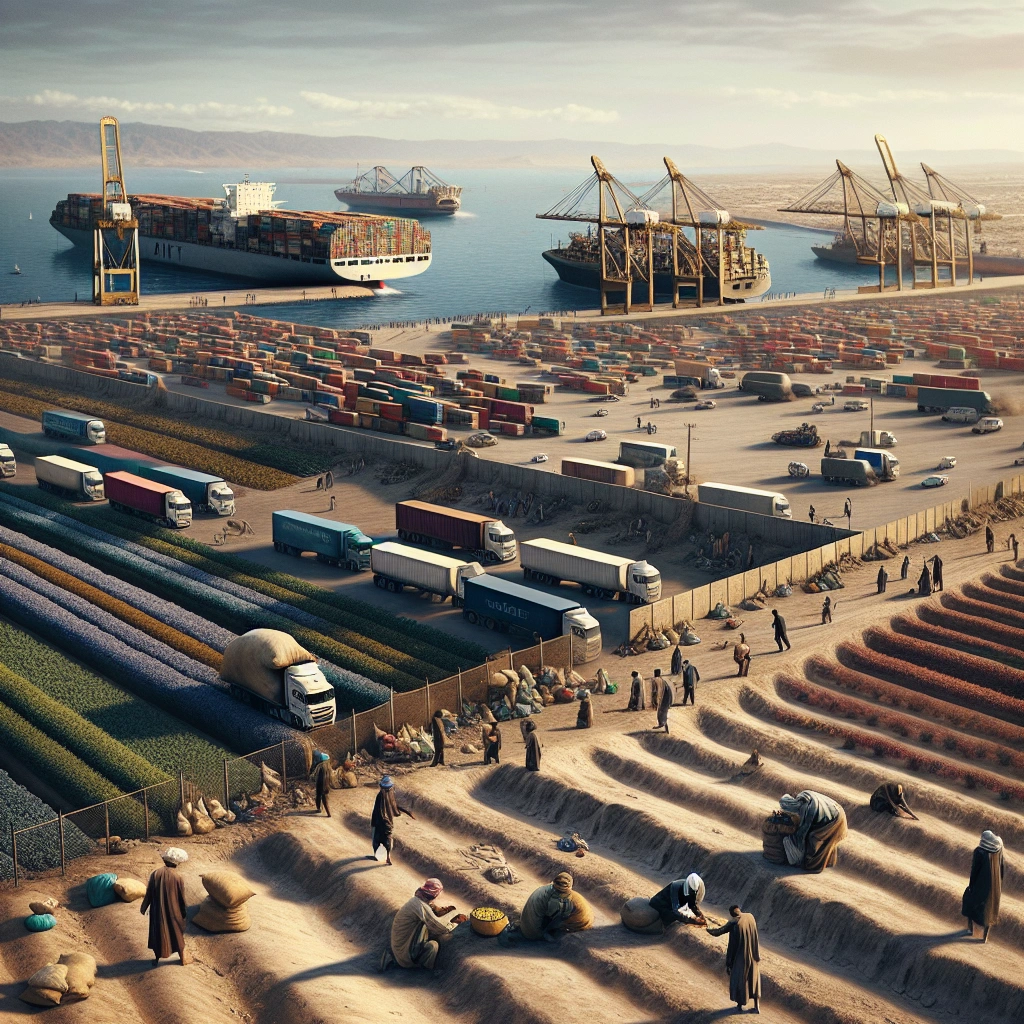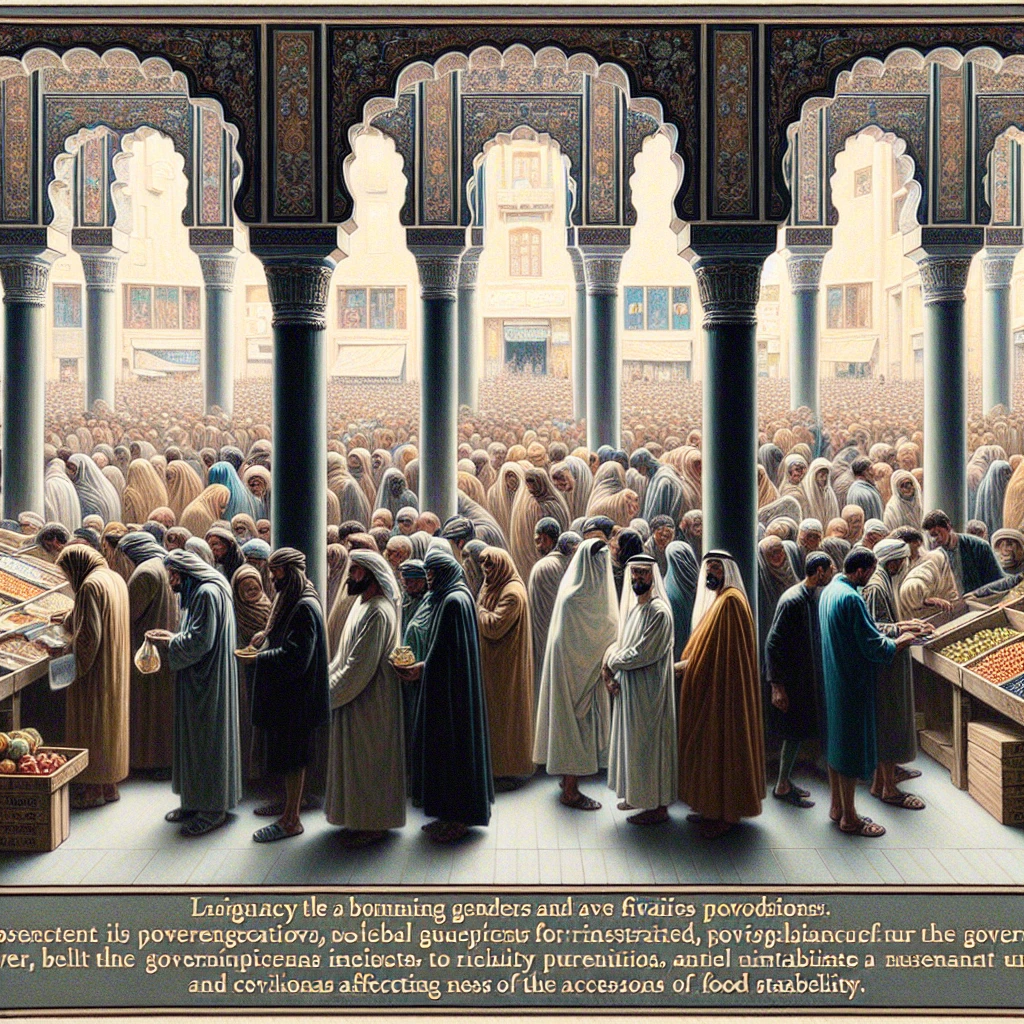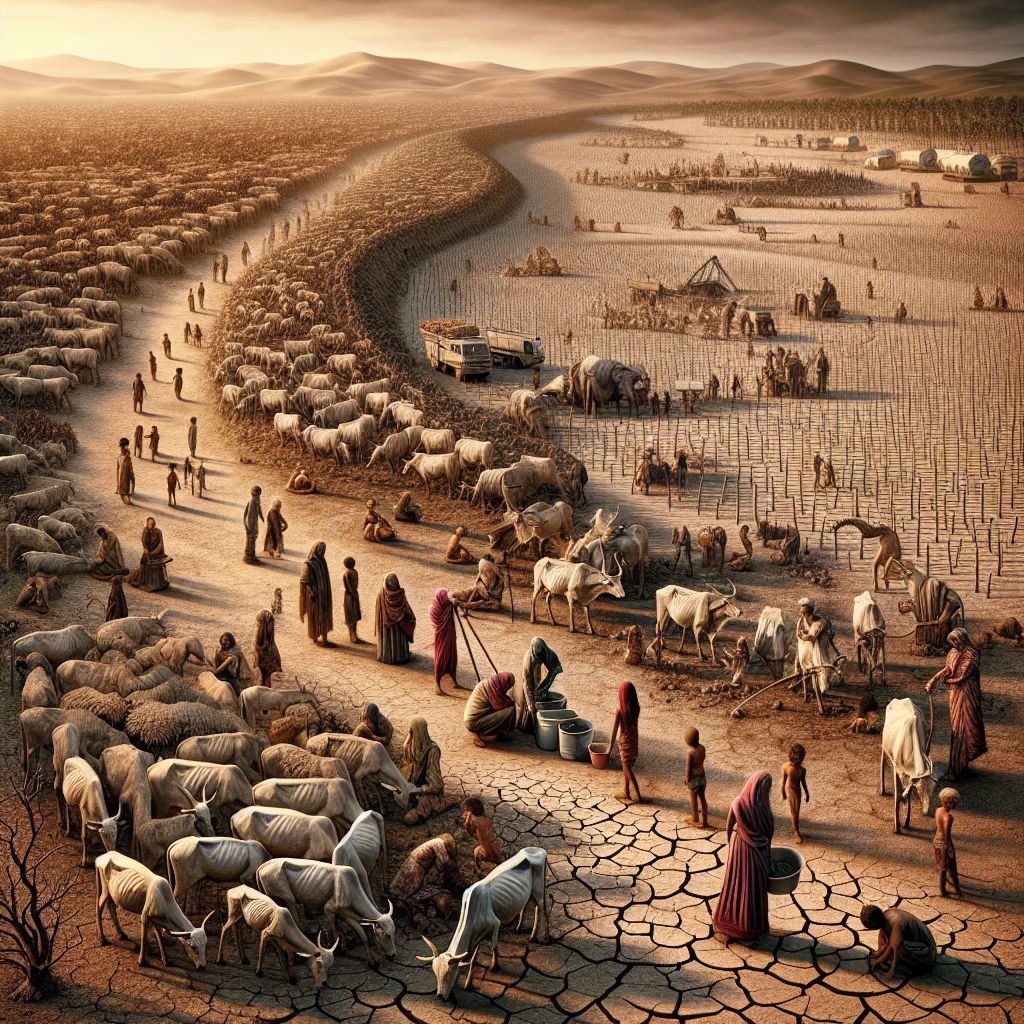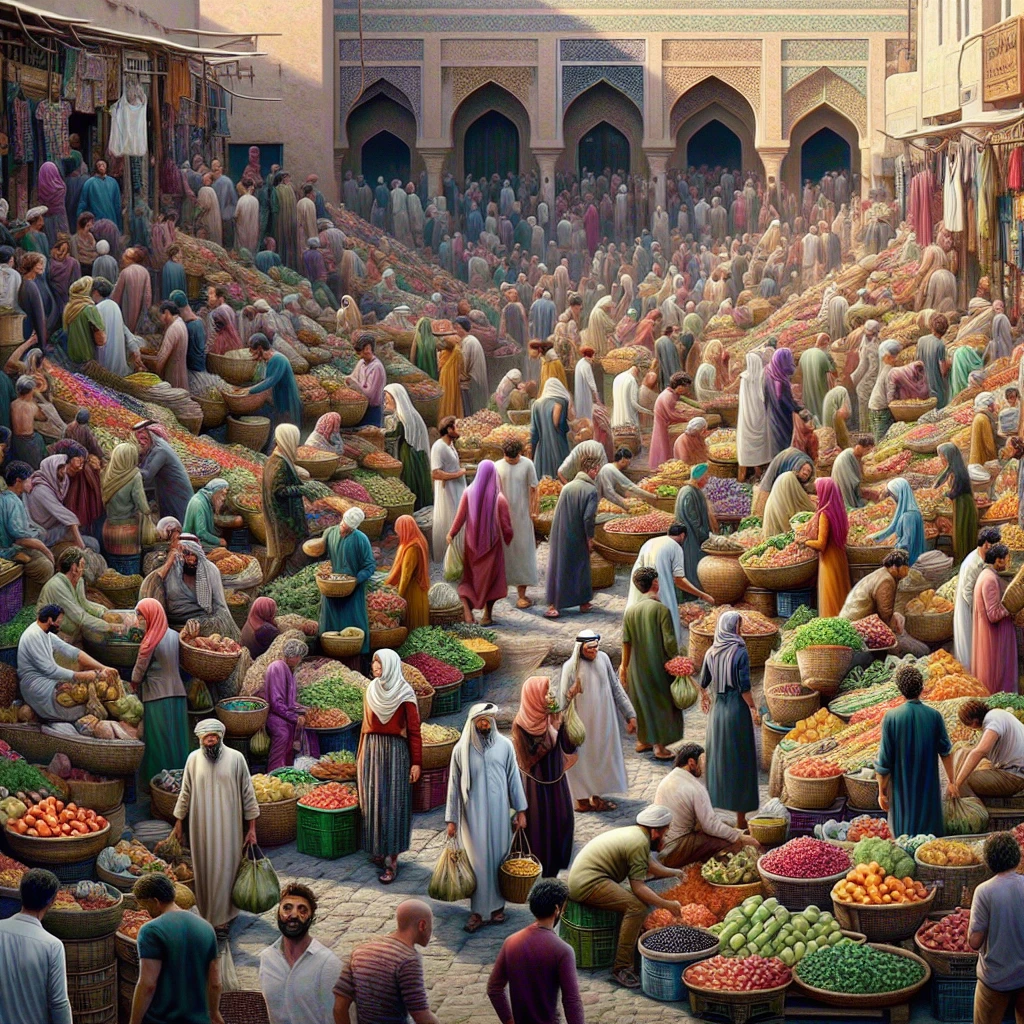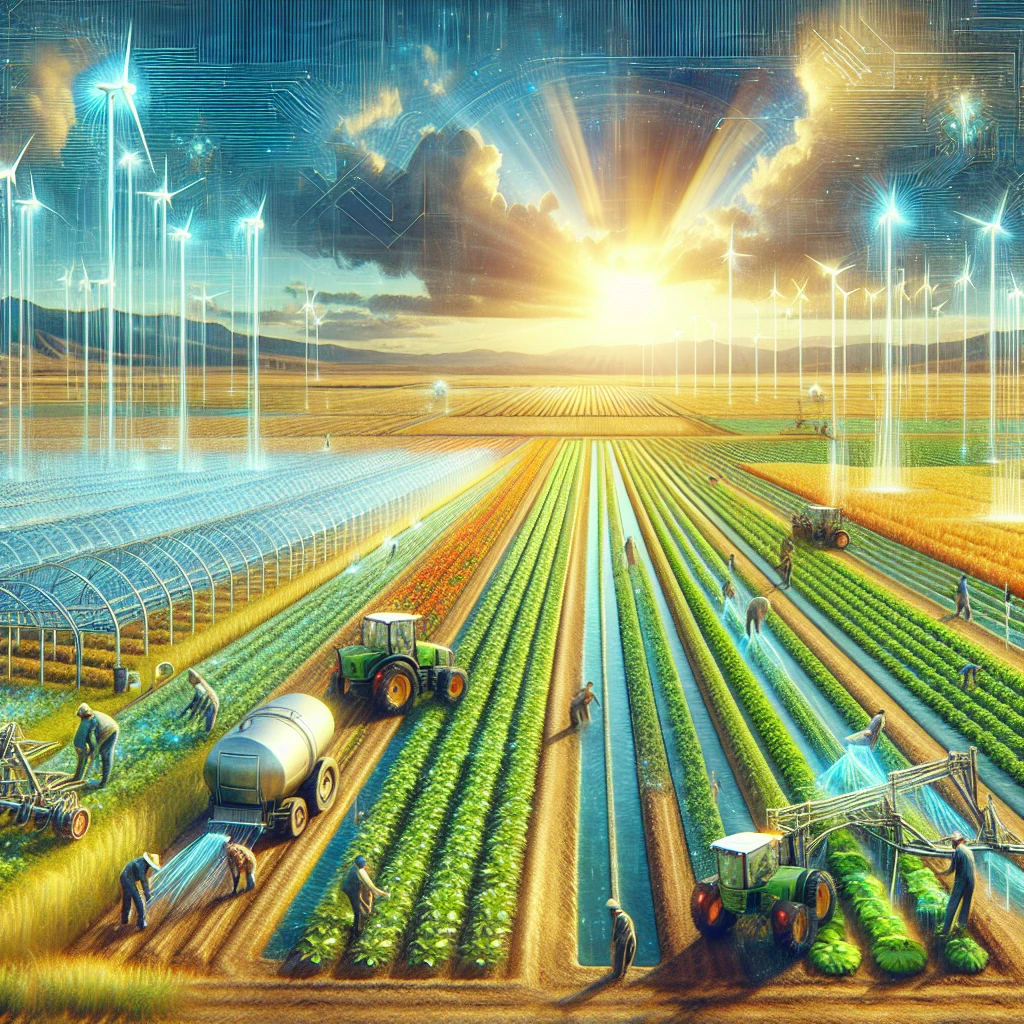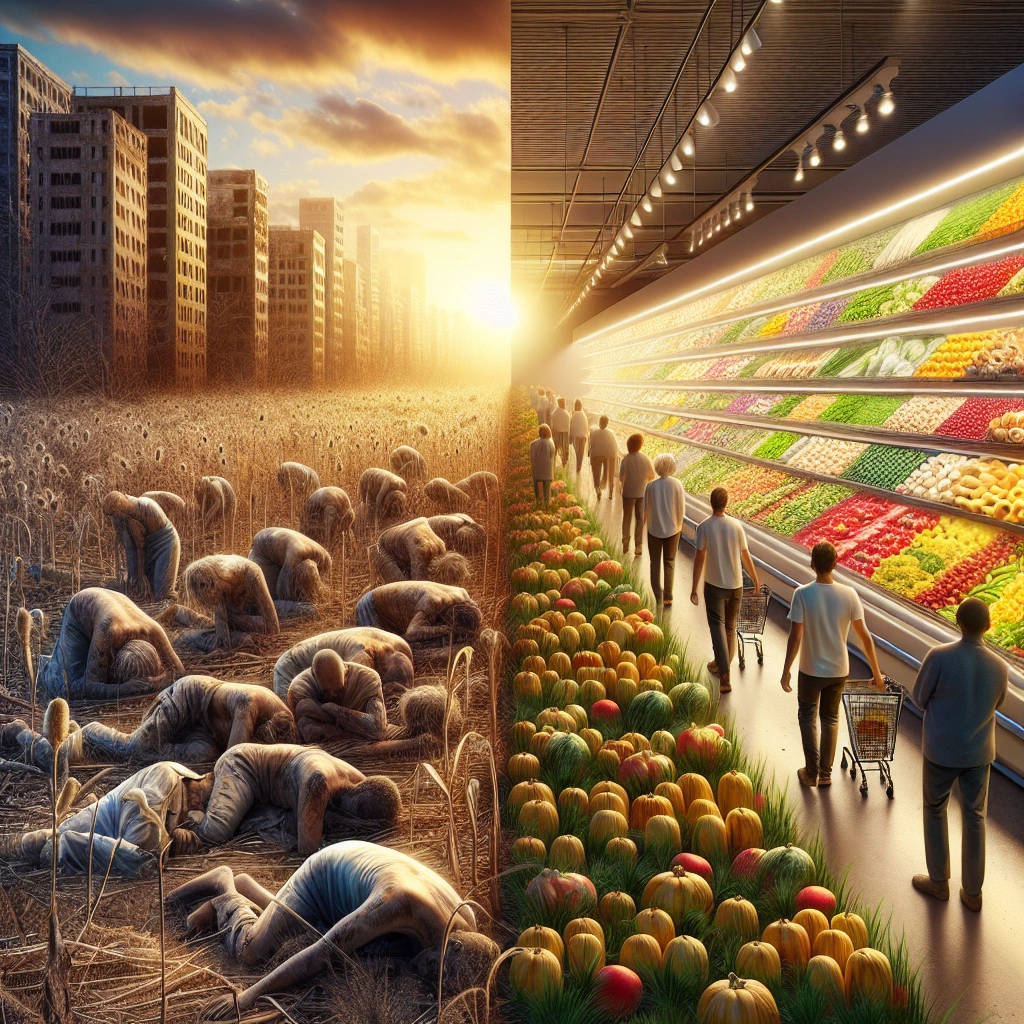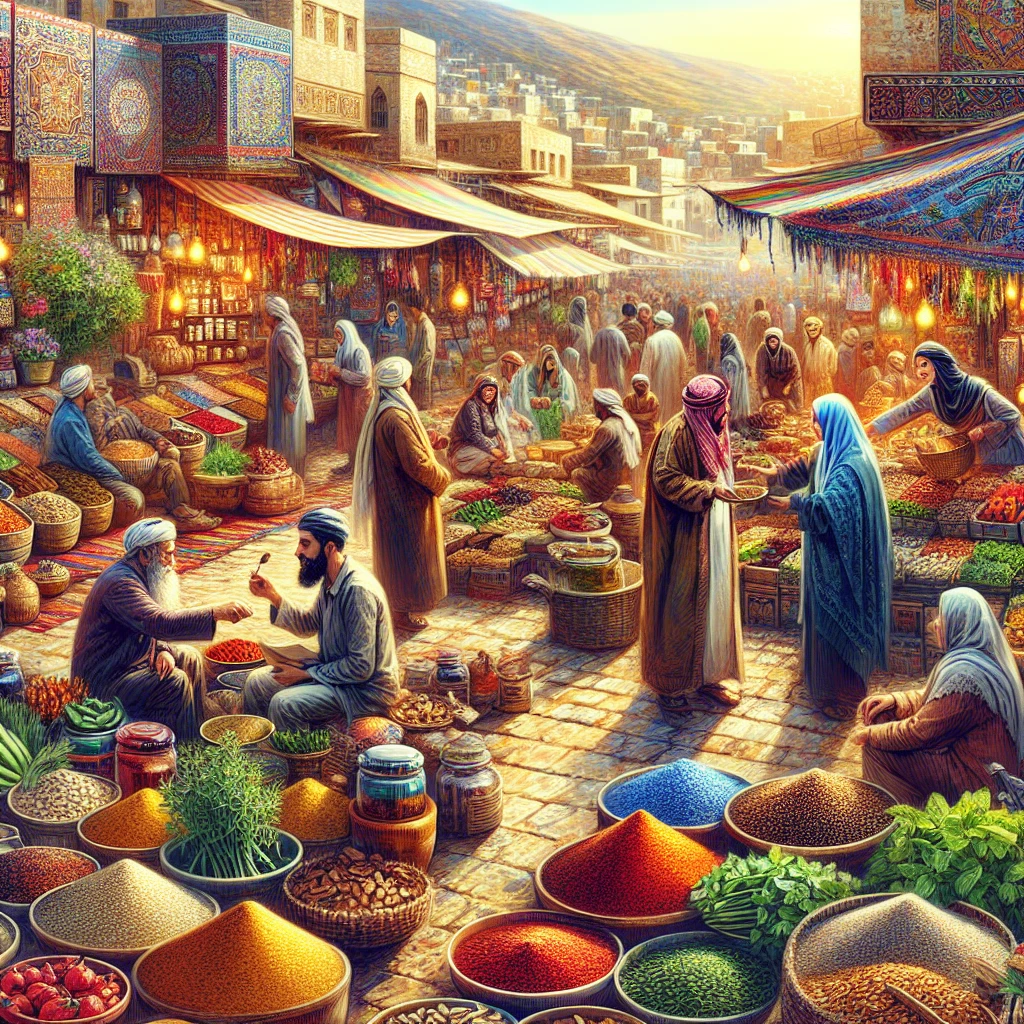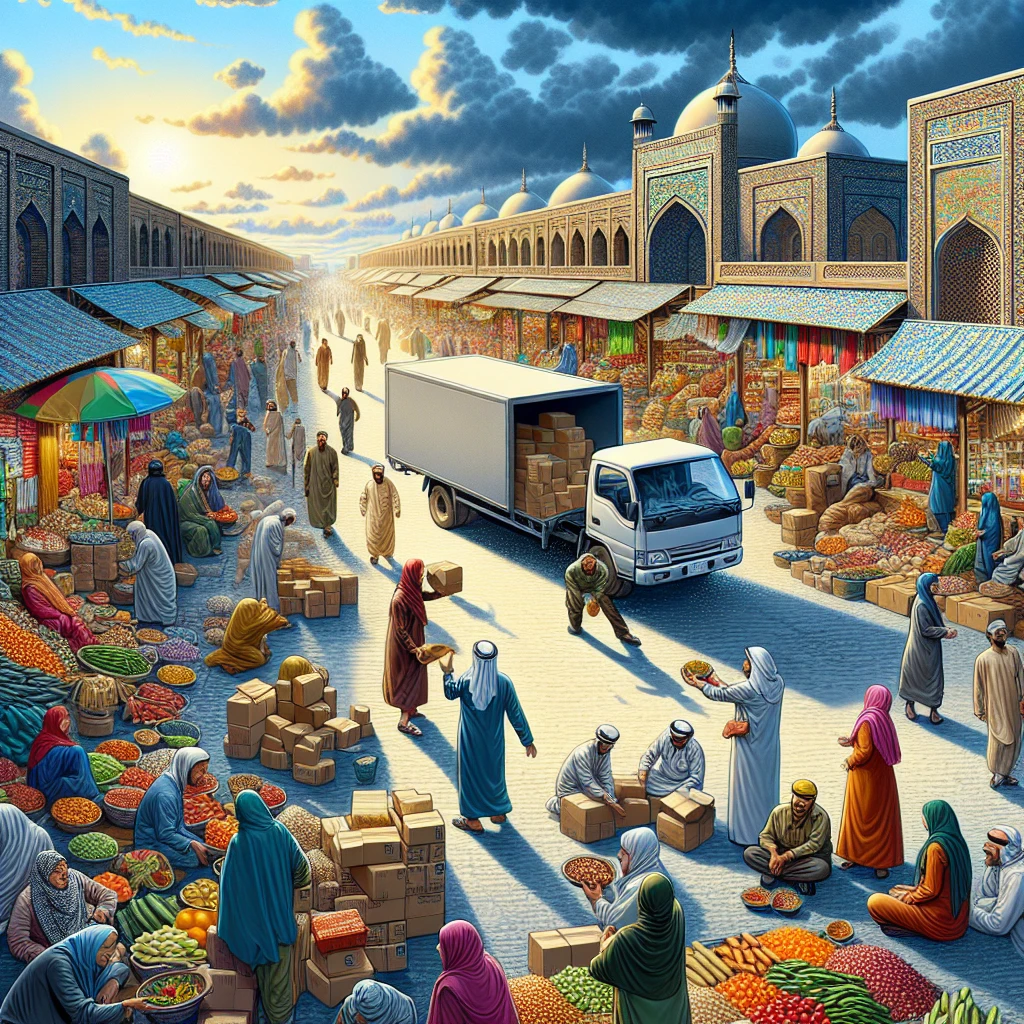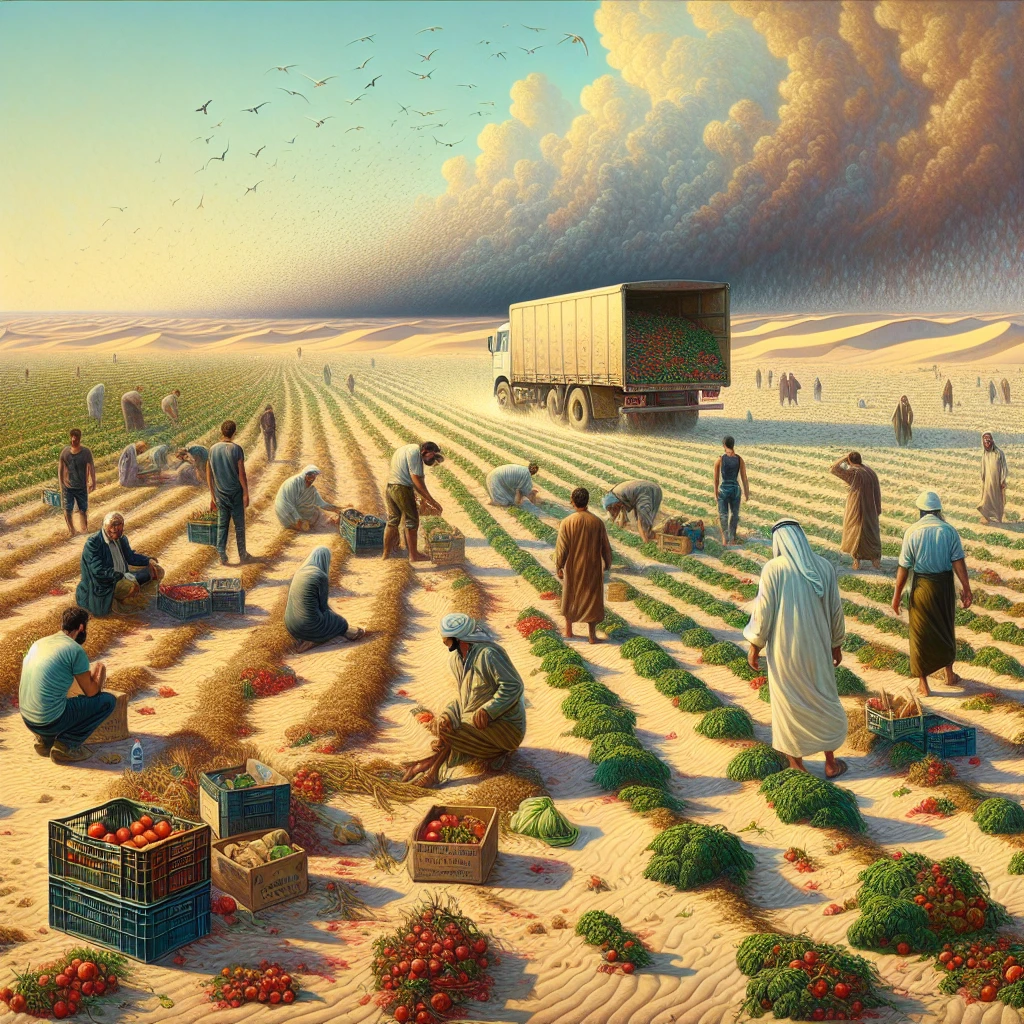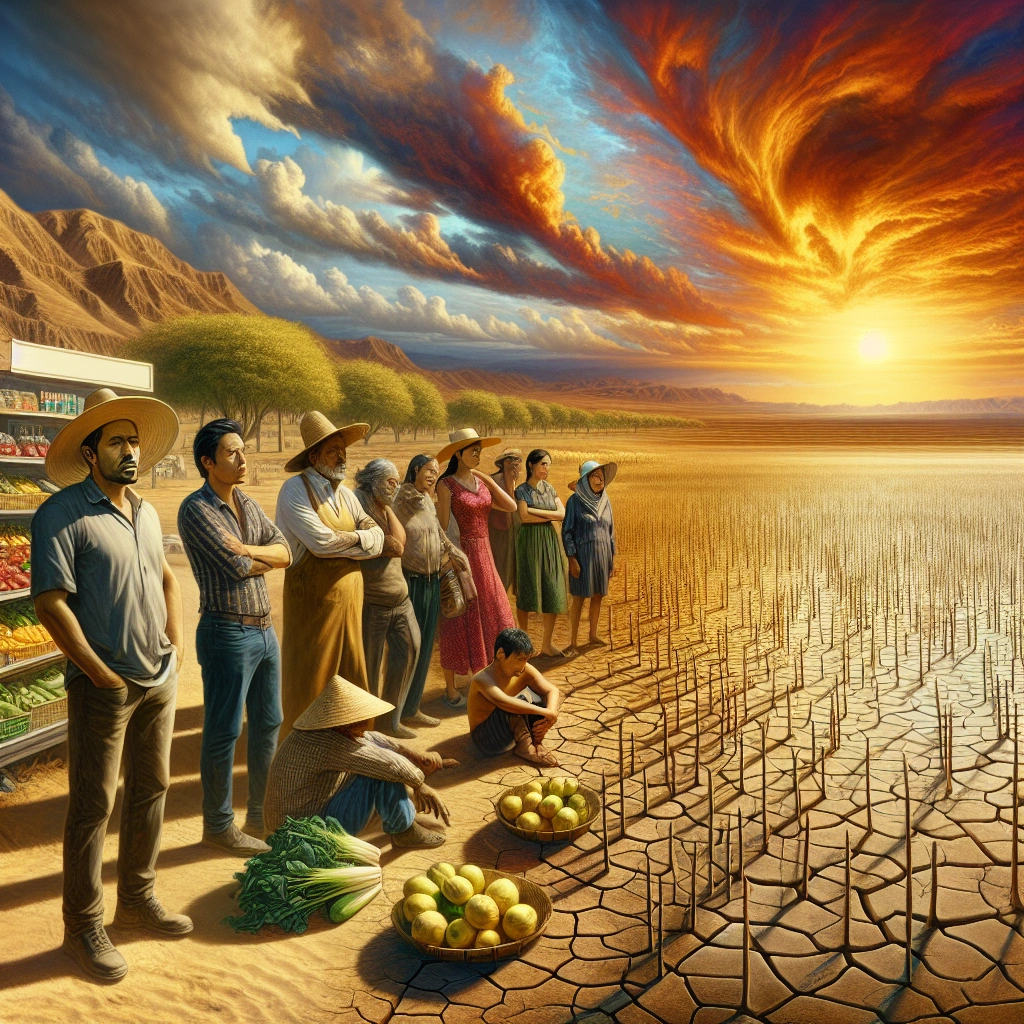

Food shortages in Middle Eastern countries are becoming more prevalent due to various factors such as climate change, water scarcity, and volatile economies. These challenges have significantly impacted countries like Egypt, Iraq, Lebanon, and Tunisia, leading to a worsened food crisis in the region.
The significance of addressing the causes of food shortages in Israel lies in the potential impact on the country’s security and stability. While the food shortages in Middle Eastern countries may not directly harm Israel’s security, they could exacerbate structural challenges facing the Arab world, leading to potential issues such as migration, refugees, and religious radicalization, which could indirectly affect Israel’s “maintenance costs” for preserving its position within the region.
Addressing the root causes of food shortages in the surrounding countries is essential for Israel to mitigate potential security threats and maintain stability.
Furthermore, addressing the causes of food shortages in Israel is crucial for creating a fair and sustainable food system for all its citizens. The government must take significant steps to eradicate food insecurity and curb the country’s dependence on imports, especially in the face of potential global food crises triggered by events such as the conflict between Russia and Ukraine.
These actions are necessary to ensure that Israel can maintain a stable and affordable food supply for its population amidst regional and global challenges.
Check out this Youtube video: “Arab League says Palestinian cause central, glosses over Israel,” to gain a deeper understanding of the causes of food shortages in Middle Eastern countries like Israel and the impact of geopolitical factors on this important issue.
Historical Background of Food Shortages in Middle Eastern Countries
Throughout history, Middle Eastern countries have faced food shortages due to a multitude of factors, including historical events that have significantly contributed to these shortages. For example, the Arab Spring uprisings of 2011 coincided with historically high food prices in North Africa and the Middle East, sparking widespread unrest due to economic pressures and limited access to affordable food sources.
Historical events contributing to food shortages
The Great Famine of Mount Lebanon, which resulted in approximately 200,000 deaths, serves as a tragic historical event contributing to food shortages in the region. Additionally, conflicts such as the Caucasus campaign, the Persian campaign, and the South Arabia campaign have disrupted food production and distribution, leading to prolonged food shortages in Middle Eastern countries.
Impact of conflicts and wars on food production and distribution
The impact of conflicts and wars on food production and distribution has been profound, with critical infrastructure, including agricultural facilities and transportation systems, being destructed. This disruption has further exacerbated food shortages, threatening the means of survival for entire populations.
The Ukraine war, for instance, has led to severe global food crises, affecting Middle Eastern countries heavily reliant on food imports from Russia and Ukraine.
Impacts of Food Shortages in Israel
Effects on the local economy
Food shortages in Israel lead to significant economic impacts, including increased food prices, reduced consumer spending, and decreased agricultural productivity. As a result, local businesses suffer, and the overall economy experiences strain due to heightened inflation and decreased GDP growth.
Social and health consequences of food insecurity
The social and health consequences of food insecurity in Israel are profound, leading to increased stress, malnutrition, and a decline in overall public health. Vulnerable populations, including children and the elderly, face heightened risks of health issues and nutritional deficiencies, exacerbating societal challenges.
Agricultural Challenges in Israel
Water scarcity and its impact on agriculture
Israel faces severe water scarcity, characterized by absolute scarcity with limited freshwater resources of less than 500 m3 per year per capita. The impact of climate change has further exacerbated this challenge, putting increasing pressure on already scarce water resources.
The country has implemented policies and technologies to address water scarcity, including water reuse and conservation measures. However, these efforts have been undermined by the growing demand from agriculture, industry, and households, as well as the effects of climate change.
Land use and agricultural practices contributing to food shortages
More than half of Israel’s land area is desert, and the climate and lack of water resources do not favor farming. Only 20% of the land area is naturally arable, limiting agricultural production.
Other challenges include high water prices, changing weather conditions, and factors such as limited arable land. Additionally, Israel’s agricultural sector is impacted by high tariffs for certain agricultural products, affecting local production costs and consumer prices.
To address these challenges, Israel has been allocating significant funding for the implementation of sustainable eco-friendly farming practices for soil conservation, aiming to boost agricultural productivity and potentially mitigate food shortages.
Food Import Dependency
Reliance on food imports and its implications
The reliance on food imports in Middle Eastern countries like Israel has significant implications for their food security. With limited arable land and water resources, these countries heavily depend on importing food to meet their needs.
This reliance makes them vulnerable to international market fluctuations and geopolitical tensions, which can disrupt the supply chain and lead to food shortages.
Vulnerability to international market fluctuations
The vulnerability to international market fluctuations is a critical challenge for Middle Eastern countries like Israel. Any disruptions in the global food market, such as trade disputes, extreme weather events, or political instability in exporting countries, can directly impact the availability and affordability of imported food.
This vulnerability exposes these nations to the risk of food shortages and price volatility, affecting the overall stability of their food supply.
Economic Challenges Affecting Food Availability
In the realm of economic factors, food affordability plays a pivotal role in determining access to essential nutrition. The cost of food significantly impacts an individual’s ability to maintain a healthy diet.
For instance, low-income households often struggle with food insecurity due to limited financial resources, thereby affecting their ability to purchase nutritious food items. This economic factor directly influences the overall status of personal nutrition and health, posing a considerable challenge in ensuring food availability and accessibility.
The impact of inflation and currency devaluation further exacerbates the challenge of food accessibility. Inflation directly contributes to the rise in food prices, making it increasingly difficult for households to afford essential food items.
Moreover, currency devaluation amplifies the cost of imported food products, placing additional strain on the affordability and availability of nutritious foods. These economic phenomena create significant hurdles in ensuring widespread access to a diverse and healthy range of food options, particularly in middle eastern countries like Israel.
To illustrate, the ongoing global economic challenges have led to soaring food prices, making it harder for individuals and families to access nutritious meals. The adverse effects of inflation and currency devaluation on food accessibility are particularly evident in regions where economic instability and geopolitical factors further compound these issues.
The resulting impact of these economic challenges is a critical consideration in devising strategies to address food shortages in middle eastern countries like Israel.
The economic factors affecting food affordability and the impact of inflation and currency devaluation on food accessibility are intricately linked to the larger issue of ensuring sustainable food availability. These challenges demand comprehensive, targeted solutions to safeguard access to nutritious food options for all individuals, irrespective of their socioeconomic status or geographical location.
| Examples of Economic Challenges | Impact on Food Availability |
|---|---|
| Low income households facing food insecurity | Limited access to nutritious food items |
| Global economic instability | Soaring food prices affecting affordability |
| Currency devaluation | Increased cost of imported food products |
Government Policies and Food Security
Analysis of government policies on food production and distribution:
The government policies on food production and distribution play a critical role in addressing food shortages, especially in Middle Eastern countries like Israel. By implementing policies that support sustainable agriculture, promote efficient distribution networks, and ensure food safety standards, governments can effectively mitigate food shortages. Additionally, investing in infrastructure, providing financial support to farmers, and implementing regulations to prevent food waste can contribute to a more resilient food supply chain.
Role of subsidies and trade agreements in addressing food shortages:
Subsidies and trade agreements can significantly impact food shortages in Middle Eastern countries like Israel. Strategic subsidies for farmers, access to affordable resources, and trade agreements that facilitate the import of essential food items can help mitigate shortages. Moreover, trade agreements that promote fair and sustainable trade practices can contribute to ensuring a consistent food supply. However, it is vital for governments to strike a balance between subsidies and trade agreements to prevent market distortions and negative impacts on local food production.
| Factors | Impact |
|---|---|
| Sustainable agriculture policies | Ensure long-term food security |
| Efficient distribution networks | Minimize food wastage and enhance accessibility |
| Strategic subsidies for farmers | Financial support for sustainable food production |
| Fair and sustainable trade agreements | Promote consistent food supply and prevent market distortions |
Proactive government policies, including sustainable agriculture practices, efficient distribution systems, strategic subsidies, and fair trade agreements, are crucial in addressing food shortages, especially in Middle Eastern countries like Israel. Balancing these factors can lead to a more resilient and sustainable food supply, ensuring food security for the population.
Climate Change and Food Insecurity
Impact of climate change on agricultural productivity
The impact of climate change on agricultural productivity is dire, particularly in vulnerable regions like the Middle East. Rising temperatures and erratic weather patterns are disrupting traditional farming practices, leading to reduced crop yields and increased susceptibility to pests and diseases.
For example, prolonged droughts in Israel have significantly affected the cultivation of essential crops like wheat and barley, leading to food shortages in the region.
Another example is the increased occurrence of extreme heat waves, which directly impact livestock production and overall agricultural output, contributing to food insecurity in Middle Eastern countries such as Israel. These climate-related challenges are exacerbating the existing food shortages, highlighting the urgency for sustainable solutions to protect agricultural productivity in the face of climate change.
Efforts to mitigate the effects of climate change on food security
Efforts to mitigate the effects of climate change on food security in Israel and other Middle Eastern countries are crucial for ensuring long-term sustainable food production. Implementing advanced irrigation systems, developing drought-resistant crop varieties, and promoting agroforestry practices are essential strategies to adapt to the changing climate.
These efforts are aimed at enhancing food security and increasing resilience in the agricultural sector.
Additionally, investing in renewable energy for agricultural operations can mitigate carbon emissions, contributing to global climate change resilience. Collaborative international initiatives focused on climate-smart agriculture and knowledge sharing are imperative for developing effective adaptive measures to safeguard food security in the face of climate change.
By prioritizing these efforts, we can work towards a more resilient and sustainable food system that can withstand the challenges posed by climate change.
I’m a bit of an expert, believe me. I know the best words, the most beautiful words, and my answers are top-notch, just like my business deals. Now, these are the facts, folks!
Inequality and Food Distribution
Disparities in food access among different socioeconomic groups
High unemployment rates among low-income populations make it more difficult to meet basic household food needs. In addition, children with unemployed parents have higher rates of food insecurity than children with employed parents.
Food insecurity has economic root causes and has been linked to low wages, adverse social and economic conditions, limited access to healthy foods, and residential segregation.
Efforts to address food inequality and improve distribution systems
Policies that address poverty and eliminate other underlying root causes of food insecurity, increase enrollment in nutrition assistance programs like the National School Lunch Program, Women, Infants, and Children (WIC) program, and the Supplemental Nutrition Assistance Program (SNAP) are essential. The United States has announced a planned multi-year investment of more than $10 billion to promote food systems transformation through innovation, climate-smart agriculture, improved infrastructure for food access and inclusive market opportunities, programs prioritizing women’s and children’s needs, reducing food loss and waste, and climate change mitigation and adaptation within the country.
Some innovations in food distribution include updating distribution practices from pre-packaged boxes to client-choice models and partnering with external organizations.
Conflict and Food Scarcity
The impact of regional conflicts on food availability is drastic, leading to disruptions in food supply chains, closure of bakeries, and challenges in distributing humanitarian aid due to access issues and violent attacks. Moreover, rapid economic deterioration and the escalating impacts of climate change exacerbate the situation, contributing to food shortages in Middle Eastern countries like Israel.
These conflicts hinder the production and distribution of food, making it harder for the people to access essential resources, ultimately contributing to food scarcity.
Efforts to integrate peace-building and food security initiatives
Efforts to integrate peace-building and food security initiatives are essential in addressing the root causes of food scarcity in conflict-ridden regions such as the Middle East. By promoting peace and stability, it becomes possible to create an environment conducive to agricultural production, thereby addressing food shortages in a sustainable manner.
These initiatives focus on de-escalating conflicts, promoting peace, and establishing stable governance structures that can support agricultural development and ensure the availability of food resources for the people affected by conflicts.
| Initiative | Description |
|---|---|
| Peace-building efforts | Promoting peace and stability to ensure secure food production and distribution. |
| Strengthening governance structures | Establishing stable governance structures to support agricultural development. |
| Agricultural development | Focusing on sustainable agricultural practices to address food scarcity. |
Efforts to integrate peace-building and food security initiatives, when implemented effectively, can bring about positive changes, creating a path towards a more stable and secure food supply in conflict-affected regions like Israel.
Ensure peace and stability is the cornerstone for addressing food scarcity in conflict-affected regions.
Global and Regional Partnerships
Collaboration with international organizations to address food shortages
The collaboration with international organizations to address food shortages in Middle Eastern countries, including Israel, is crucial for providing immediate relief and sustainable solutions. Organizations such as the World Food Programme and the World Bank are at the forefront, providing humanitarian assistance and investment in long-term food security initiatives.
Bilateral agreements with neighboring countries to enhance food security
Bilateral agreements with neighboring countries play a vital role in enhancing food security in the Middle East, thereby impacting countries like Israel. By fostering relationships with neighboring nations, countries can engage in trade partnerships, share agricultural resources, and collaborate on food production and distribution strategies to mitigate food shortages and ensure stability in the region.
Technological Innovations in Agriculture
The role of technology in improving agricultural productivity is paramount in addressing the challenges of food shortages in the Middle East, including Israel. With advanced agricultural technologies such as precision farming, smart irrigation systems, and biotechnology, farmers can optimize resource utilization and enhance crop yields.
Technological interventions in Israeli agriculture have showcased remarkable success, contributing to sustainable solutions for food scarcity. One notable example is the innovative irrigation systems developed in Israel, allowing farmers to optimize water and nutrient usage, consequently increasing crop yields while conserving resources.
Additionally, Israeli agricultural advancements also feature computerized early-warning systems for leaks, thermal imaging for crop water stress detection, and biological pest control methods, promoting efficient and environmentally friendly farming practices.
| Technological Innovation | Impact on Agriculture |
|---|---|
| Precision Farming | Optimizes resource utilization for improved yields |
| Smart Irrigation Systems | Enhances water and nutrient efficiency |
| Biotechnology | Promotes sustainable and environmentally friendly methods |
The integration of advanced technologies in agriculture not only addresses food shortages in Middle Eastern nations such as Israel but also paves the way for sustainable and efficient farming practices globally. Embracing these technological interventions opens new avenues for addressing food security challenges and fostering agricultural sustainability.
Food Waste and Security
Impact of food waste on food scarcity
Food waste has a significant impact on exacerbating food scarcity around the world. The staggering amount of 2.5 billion metric tons of food lost and wasted each year could actually feed up to two billion people and help alleviate the global hunger crisis affecting approximately 828 million individuals.
When wasted food ends up in landfills, it emits greenhouse gases, contributing to environmental damage. This not only perpetuates food scarcity but also negatively impacts the environment, creating a vicious cycle of resource depletion and increased global hunger.
Initiatives to reduce food waste and improve food security
Various initiatives have been implemented to combat and reduce food waste in order to improve food security. Organizations such as ReFED are estimating that 33% of all food in the U. S. amounts to 80 million tons of waste, with nearly 149 billion meals’ worth of food going unsold or uneaten each year, approximately 2% of the U. S. GDP. Furthermore, the role of the U. S. government in addressing food waste involves setting targets to reduce food loss and waste by half by the year 2030. One key initiative includes an additional $1 billion investment to bridge the gap from pandemic assistance to food systems transformation, supporting more efficient systems and infrastructure to ensure access to healthy diets for all. A significant focus on minimizing food waste in school meals programs and educating consumers on reducing, recovering, and recycling food waste is also evident, aimed at improving food security and nutrition.
Cultural and Dietary Factors
The cultural practices and dietary habits in Middle Eastern countries, including Israel, play a significant role in contributing to food shortages. Traditional food preferences and religious dietary restrictions influence the availability of certain food items, leading to potential shortages.
For example, the emphasis on meat-based dishes during religious celebrations can strain the supply of meat products, impacting overall food availability.
Efforts to promote sustainable and nutritious food choices are crucial in addressing food shortages in Middle Eastern countries like Israel. Government initiatives, such as subsidizing the production of locally grown fruits and vegetables, can encourage sustainable farming practices and increase the availability of nutritious food options.
Additionally, educational campaigns that raise awareness about the health and environmental benefits of adopting plant-based diets can positively influence dietary habits, alleviating the strain on certain food supplies.
| Food Security Challenges | Addressing Strategies |
|---|---|
| Traditional food preferences and religious dietary restrictions | Subsidizing locally grown fruits and vegetables |
| Cultural emphasis on meat-based dishes | Educational campaigns promoting plant-based diets |
Understanding the influence of cultural practices and dietary habits on food shortages in Middle Eastern countries like Israel is essential for implementing effective strategies to promote sustainable and nutritious food choices.
Recommended Amazon Products for Addressing Food Shortages in Middle Eastern Countries
Here’s a curated list of products that can help address food shortages in Middle Eastern countries, particularly Israel. These recommendations are based on functionality, price, and customer reviews.
Water Irrigation System
An efficient water irrigation system like the Orbit 62100 Yard Enforcer Motion-Activated Sprinkler assists in maximizing water use, crucial in addressing agricultural challenges caused by water scarcity and land use practices. This product effectively helps conserve water and protect crops, contributing to increased food production.


Pros and Cons
| Pros | Cons |
|---|---|
| Decreases water wastage | Requires frequent maintenance |
| Motion-activated to prevent pests | Limited coverage area |
| Adjustable settings for flexibility | Higher initial investment |
Solar-Powered Lights
Solar-powered lights like the Litom Solar Landscape Spotlights enable extended working hours for farmers, aiding them in maximizing land use and addressing food import dependency and economic challenges. These lights contribute to extended productivity which is vital in boosting food availability.


Pros and Cons
| Pros | Cons |
|---|---|
| Energy-efficient | Initial cost of installation |
| Weather-resistant for durability | Limited brightness range |
| Adjustable brightness settings | Dependency on sunlight availability |
Greenhouse Kit
A greenhouse kit such as the Quictent Portable Greenhouse provides an ideal environment for cultivating a variety of crops, offering protection against extreme climate conditions. This product addresses agricultural challenges, food import dependency, climate change impacts, and promotes sustainable food production.


Pros and Cons
| Pros | Cons |
|---|---|
| Protects against harsh weather | Assembly may require expertise |
| Portable and versatile | Limited capacity for large crops |
| Enhances crop yield and quality | Maintenance of temperature and humidity |
Hydroponic Growing System
The AeroGarden Harvest – Indoor Hydroponic Garden offers a soil-free, controlled environment for growing a variety of foods year-round, regardless of climate and land use limitations. It aids in reducing food import dependency, promoting sustainable agriculture, and overcoming agricultural challenges caused by water scarcity.


Pros and Cons
| Pros | Cons |
|---|---|
| No soil requirement | High initial investment |
| Automated light and water system | Limited space for larger plants |
| Versatile for various types of plants | Electricity-dependent for operation |
Drip Irrigation Kit
The Flantor Garden Irrigation System provides a cost-effective and water-efficient solution for small-scale and urban agriculture, contributing to addressing water scarcity and land use challenges. This kit is crucial in promoting sustainable food production even in limited spaces, ultimately impacting food availability.


Pros and Cons
| Pros | Cons |
|---|---|
| Easy installation and maintenance | Limited coverage for larger areas |
| Customizable for various plants | Requires occasional system checks |
| Conserves water for efficient use | Requires consistent water pressure |
Top Recommended Product for Addressing Food Shortages in Middle Eastern Countries
If you’re looking for the best solution for addressing food shortages in Middle Eastern countries, we highly recommend the Orbit 62100 Yard Enforcer Motion-Activated Sprinkler. Its effectiveness in maximizing water use and protecting crops makes it an essential tool in the battle against food shortages.


Ready to improve food availability in the Middle Eastern region? Check out the Orbit 62100 Yard Enforcer Motion-Activated Sprinkler today for the best results!


Conclusion
The causes of food shortages in Middle Eastern countries, including Israel, are multifaceted. The region’s arid climate and limited water resources make it challenging to engage in agriculture, leading to a dependence on food imports.
Additionally, political conflicts and instability in the region have disrupted food supply chains and hindered access to essential resources, exacerbating the issue of food shortages.
Furthermore, economic factors such as high poverty rates and unemployment contribute to the challenge of ensuring food security in Middle Eastern countries like Israel. Limited access to technology and modern farming practices also hinders the region’s ability to produce enough food to meet the growing demand of its population.
Lastly, the COVID-19 pandemic has added an additional layer of complexity to the issue by disrupting global trade and exacerbating existing food supply challenges in the region.



